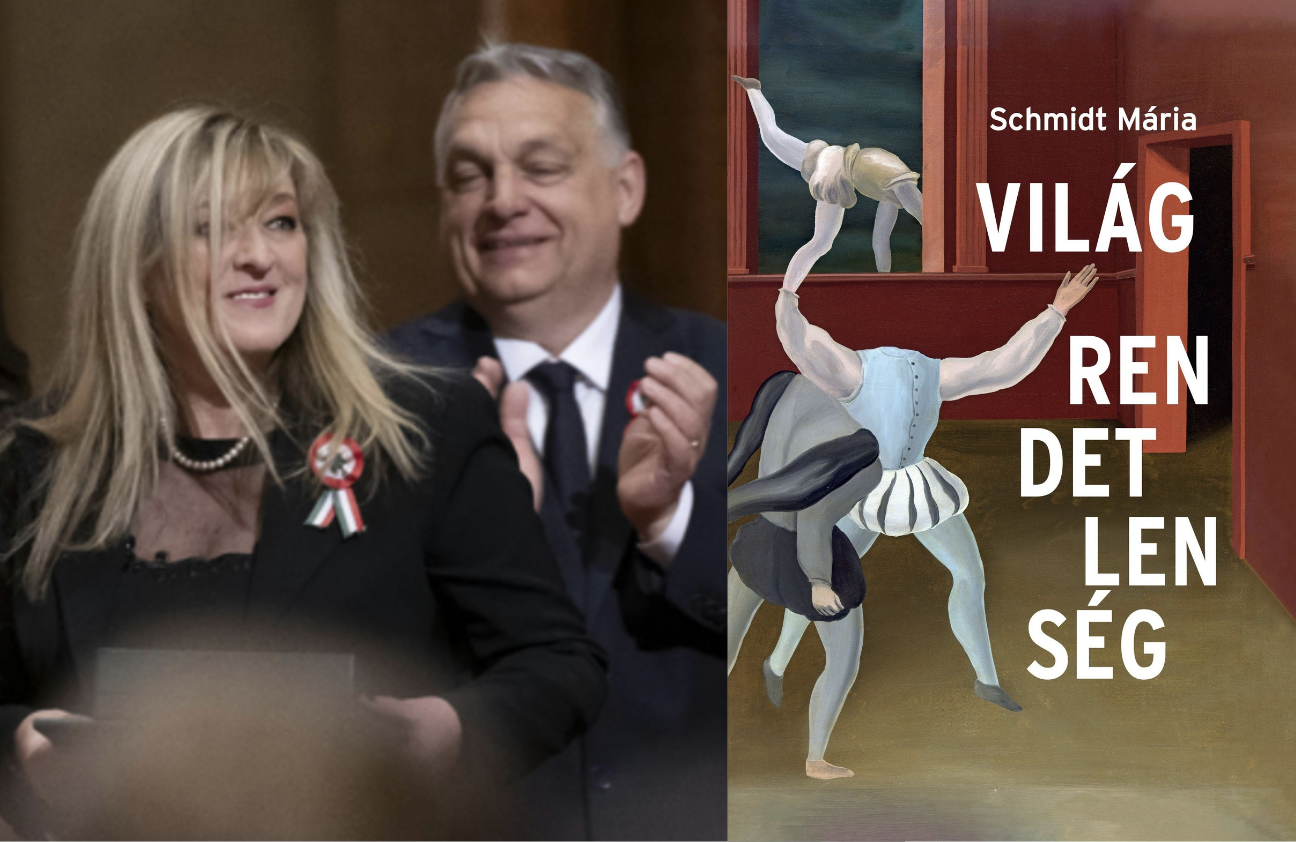Mária Schmidt, the director general of the House of Terror Museum and the 21st Century Institute, has published a series of essays entitled “Világrendetlenség,” i.e., “World Disorder” or “World Chaos” (the book is not yet offered in English), although perhaps “Global Chaos” would be the best.
According to the Foundation for Research on Central and Eastern European History and Society (KKETTK), the umbrella organization for the two previously mentioned think tanks headed up by Schmidt, the essays cover questions such as “What is the Europe and world in which we live?” “Why are they like this?”, “What are we Hungarians like in this world?”, and “What can we do for our future?”.
Her book launch comes on the back of recent comments made by the historian on the case of Ilaria Salis, the “alleged hammer gang” member who escaped justice by becoming an Italian MEP and receiving immunity. Another member who confessed to the crime is already serving a sentence in Hungary, while others have been imprisoned in Germany.
“In Hungary, she attacks random passers-by from behind and beats them half to death with iron rods together with her fellow anti-fascist criminals. This woman has brought shame to Italy!” Schmidt writes.
“I also think that ‘the rule of law, the credibility of the European Union and the values for which the Union was founded’ are at stake when the legal committee of the (European Parliament) makes a decision on her extradition,” she continued, warning that Europe could face “thugs roaming the streets of Europe and beating citizens at will” if the EU does not revoke her immunity.
Schmidt has also just overseen the launch of a new institute within the 21st Century Institute by former Fidesz architect József Szájer, the Free Europe Institute, to help bring the EU back to its roots of sovereignty and democracy.
The Széchenyi Prize-winning history professor argues in her new book that Europe, which is our home and which we think we know well, is no longer itself, as it is working hard to dismantle its own identity.
Christianity is the basis of everything here and is what made this land great, writes KKETTK, adding that it completely changed the previous value system, thinking, and social organization.
“The desire to understand the world, the flourishing of universities, and science also started from Christian foundations in Europe, making our continent the world’s leading power for many centuries. Our behavior, our system of norms, our cultural canon, and our entire outlook on life were determined by Christianity. In fact, Europe has been attacking and demolishing them since the Enlightenment, which was confirmed in ’68, and today the wokeism exported from the USA without hindrance is doing the destruction,” they continue.
The book on global disorder presents how the United States became a world empire and how a new world was born under its influence in the 20th century, a world in which Christianity has been replaced by communist woke ideology.
It further points to the Ukraine war as typical of U.S. imperial foreign policy. “The American elite makes huge shady deals on local natural resources,” reads the foundation’s website. “It destroys society, embeds its ideology and companies, and starts wars. And if the situation becomes untenable, America turns its back as in Vietnam, Iraq, and Afghanistan.”
The same fate awaits Ukraine, it declares, but despite these experiences, Europe blindly follows American instructions.
“The United States does not agree on a mutual basis, but forces upon us the ideology of the woke, contemporary Jacobinism,” Schmidt writes in her book, adding that meanwhile, the former great powers of Europe have fallen, with the British, the French, the Germans, all facing their own crises.
Schmidt’s essays make clear that Hungarians remember what a dictatorship and communism are like, stating that when their everyday lives and Christian values are attacked, they will act.
“In this confused world disorder, our own Christian and Eastern roots simultaneously help us navigate and maneuver in the midst of great power movements,” she says.
“We are bombarded with news. Despite this, we do not understand the disturbing phenomena around us one iota better, in fact. We’re just scratching our heads. We, Hungarians, should navigate and find our way in the opaque matrix of wars, epidemics, the United States, which is deceiving our former illusions, the distant China, which is becoming unavoidable but not understood, and the European Union, which is stumbling down a dead end. Everything is in motion: rules, norms, patterns, boundaries. The everyday person feels lost,” reads Schmidt’s official site announcing the book.






